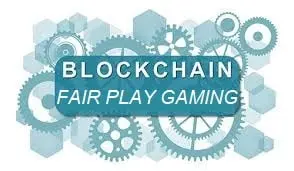You Ask – We Explain: BlockChain & Fair Play


Blockchain is the technology behind cryptocurrencies and as Bitcoin and other cryptocurrencies become more integrated with online casinos, the concept is now part of the online gaming industry. Blockchain is not easy to explain or to understand but it's here to stay so let's try.
"Blockchain, originally block chain, is a growing list of records, called blocks, that are linked using cryptography"..." each of the blocks has a unique timestamp with unique transaction data that is resistant to manipulation." (Source: Wikipedia)
Online gambling is continuously evolving and new technologies are completely changing the way fairness is perceived in the online gambling environment. The most efficient way of building trust could be by making it become insignificant. In other words, by using blockchain-based technologies that allow operators to completely remove any hackers and scammers and prevent them from interfering with the results of games. Since there would be no need for players to blindly trust a casino's policy since they would have the opportunity to personally ensure the venue is 100% safe, lots of the old problems would vanish.
A Brief Definition of ‘Provably Fair’
Provably fair is a term that refers to the procedures used for generating results on gaming platforms that can be independently vetted by users in terms of random and authentic results. This is very important at most online sites are "real-money" casinos. Before blockchain-based coding and other similar solutions started to be used, users were forced to put their trust into a virtual gaming platform and hope it was generating 100% random results with zero interference from the exterior. The main fear was that the house would stand in order to make a profit by knowing the betting style of players and intentionally displaying unfavorable results to users.
With the help of blockchain gambling, all information regarding individual bets and results is saved on public ledgers, where all users can access and verify them. In other words, gamblers no longer need to blindly trust the so-called “third-party” verification, but they can personally check the fairness of the games with the help of random hashes and seeds and independent tools used for assessing the results.
While lots of casino sites claim to be provably fair, unfortunately, not all of them can deliver what they promise. Given the fact that the great majority of virtual gamers do not work in the field of programming, they would have no way of knowing whether the claims are true or not. Trustworthy casinos offer direct links to open source tools that can be used by the players for assessing results and seeds. For best results, random results generating algorithms should also be open source.
FairPlay Has Already Integrated A Blockchain Platform
FairPlay is a Curacao licensed casino that relies on blockchain technology. The venue has recently announced that it has managed to fully integrate a blockchain platform called TruePlay and send it out on the market. This way, the casino will be the first gambling platform in the world that would be running on blockchain and provide gamblers completely fair games and the most transparent payments and withdrawals. TruePlay uses the most recent distributed ledger technologies that can turn all stages of tracking players' activity into the easiest and most transparent processes.
Players would be allowed to add more funds to their crypto wallets on the site with the help of Bitcoin and Ethereum; however, they would only be able to bet using TPLAY tokens. This is an ERC-20 token that has been designed by the TruePlay platform as a safe token that can be stored and tracked in the blockchain.
Blockchain Adds a New Layer of Protection
Ever since Microgaming created the first iGaming software in 1994, even before the first online casinos were born, people with a passion for casino games were anticipating the virtual gaming experience. Once the first casinos received their license and started to run on the world wide web, the industry started to be shaped and it only went on an ascending curve ever since. iGaming or interactive/online gaming is today a highly lucrative, ever-growing industry with developers and operators keep pushing for new technologies to harness its’ power.
Unavoidably, however, the industry has also dealt with some serious problems in terms of the fair character and the randomness of the gameplay. This is where blockchain technology comes into the picture, aiming to provide a top solution in provably fair gaming. Gamblers who worried about rigged games are now getting an extra layer of protection. Blockchain code will make sure all games are fair and completely random.
Was this article helpful?


